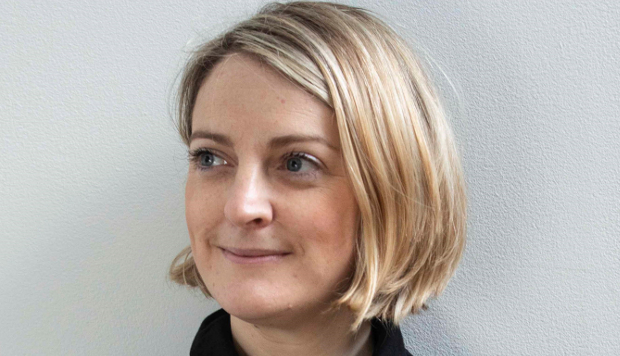
Focus on research: Prof Yvonne Nolan, APC Microbiome Ireland
Prof Yvonne Nolan is a funded investigator at APC Microbiome Ireland, the Science Foundation Ireland research centre studying the gastrointestinal bacterial community (the microbiota). In this interview she talks about her experience at UCC and why her current research focusses on middle age.
Tell us about your career to date.
I have a BSc in Biochemistry from NUI Galway, where I did a project in the area of neuroscience. I continued on to a PhD in neuropharmacology under the supervision of Prof Brian Leonard investigating the interactions between the immune system, stress and behaviour. Following that, I was visiting fellow at McGill University in Montreal in Canada. Then I returned to Ireland where I held an academic post-doctoral position and an industry post-doctoral position in Trinity College Dublin. There I worked with Prof Marina Lynch, on brain inflammation in the context of memory.
I joined UCC as a lecturer in 2003. I’m Professor of Anatomy & Neuroscience and currently have a role as Vice Dean of graduate studies at the College of Medicine & Health at UCC. I have been working in the area of brain inflammation but also developing work on brain plasticity, in particular hippocampal neurogenesis – the birth of new neurons in the hippocampus. The research is around investigating the impact of what we call modifiable lifestyle factors, things like exercise, stress and diet, in particular at transition times like adolescence or middle age or indeed older age as well. In the context of disease, I’m particularly interested in the role of inflammation and more recently on the gut microbiome and brain plasticity, how they interact in mediating these lifestyle influences on the brain and on how we behave.
One of the interesting things APC is examining is the relationship between the brain and the microbiome.
There is a lot of evidence that suggests the gut microbiota – all of these trillions of microorganisms that live in the gastrointestinal tract – can impact behaviour. It has implications in depression, in social behaviour and also in age-related diseases and neurodegenerative diseases. What’s missing are the pieces of the puzzle showing the connection.
It’s a good time to be studying anything to do with lifestyle given the changes enforced on us over the last two years.
Interestingly, evidence and reports suggest that during lockdown there is increased weight gain and there’s an interaction between the immune system and obesity – this heavily influences things like behaviour.
As time goes on, we will see more research about how the immune system impacts upon behaviour. The pandemic has stimulated issues around mental health, and the role of the immune system has on mental health and behaviour is heavily researched at APC Microbiome Ireland.
There’s also work ongoing in the context of long Covid and how the immune system is activated in response to a virus, and its long-lasting effects on brain health and on behaviour.
The research you’re working on at the moment is on middle age (40-60 years of age) and memory performance. Why opt for that particular cohort?
We’re living longer, so that middle age period is later because we’re living healthier. But as we gear towards older age a lot of environmental factors can culminate to impact upon brain ageing. We think the middle age period is under investigated. The hypothesis is that there’s a ‘neuroinflammatory load’ throughout the lifespan, an accumulation of exposure to negative factors like stress, toxins, a sedentary lifestyle, and an unhealthy diet. Middle age can be a time that these factors can influence how our brains age in later life. We know that certain biological events occur in middle age like weight gain, a decline or a decrease in metabolism or physical fitness. It’s often a time when there is increased risk of diabetes or cardiovascular disease. With all of these events we’re asking how they contribute to how we brain age – especially in the context of memory.
So is there a role in this research for identifying, say, early onset dementia?
Yes. If there is a change, for example, in the microbiota composition or the metabolites from the gut microbiota. We ask the questions: ‘how could these metabolites then signal to the brain during this time of the lifespan to impact upon how we function cognitively?’ ‘What are their triggers?’ ‘Are there correlations between changes in what we see in the gut microbiome and the bloodstream?’ ‘Can we piece those puzzles together in the context of metabolites?’
This approach opens up the potential for personalised medicine, not just sort of research studies at scale. Can you see these sort of applications happening?
It will take some time and it is an area of research where there is much focus. If we can identify key biological factors in the gut, in the bloodstream or even in the cerebrospinal fluid – which flows between the nervous system and the brain – we can identify changes in middle age. We are also interested in how these factors respond to exercise as they could be predictors that could be potentially modifiable through exercise and specific to individuals. What’s interesting is that there could be a possibility of treating those who are middle aged or older who are unable to exercise, biomarkers could be targeted pharmacologically.
Looking forward, what areas of research are catching your attention?
We’re quite interested in dementia and Alzheimer’s disease. There have been a couple of studies to show that Alzheimer’s patients have an imbalance in their gut microbiota composition, which is a hallmark of unhealthy ageing. Work is ongoing in another project where we are looking at how to stratify Alzheimer’s patients as being ‘inflammatory’ or not and how that correlates to inflammatory microbiota in the gut and how that might affect their memory behaviour.








Subscribers 0
Fans 0
Followers 0
Followers